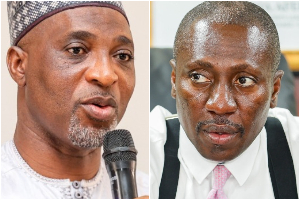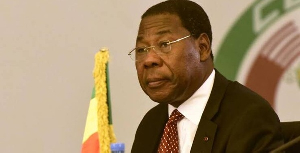The approval of the budget statement for the 2021 fiscal year is an indication that austerity and hardship have been pronounced, Professor John Gatsi, Dean of the Business School at the University of Cape Coast has said.
Ghana’s Parliament approved the budget on Friday, March 19, 2021
TV3’s Mercydarlyn Lokko who was in parliament during proceedings reported that “At the end of the headcount, the I’s had 137 and no’s 134 so the budget has been approved by parliament.”
The government introduced a COVID-19 Health Levy of a one percentage point increase in the National Health Insurance Levy and a one percentage point increase in the VAT Flat Rate to support expenditures related to Covid-19.
“To provide the requisite resources to address these challenges and fund these activities, government is proposing the introduction of a Covid-19 Health Levy of a one percentage point increase in the National Health Insurance Levy and a one percentage point increase in the VAT Flat Rate to support expenditures related to COVID-19,” the budget said among other things.
Reacting to the agreement, Prof Gatsi said “Whether or not austerity programs are directed by IMF or our government, desperate taxes and levies are imposed. Public debt levels impose repayment burden and deprive the country of commensurate investment in public infrastructure. The Period is characterized by hardship and erosion of income.
“An attempt to interfere with the constitutional insulation of the budgetary process for the judiciary and a bitter pill to public sector workers of the inability of government to ensure significant wage adjustment show that austerity and hardship have been pronounced. Already, some private sector businesses are not able to pay the existing minimum wage hence pronouncement by government is an incentive to deteriorate wages by these private sector entities.
“Anytime government calls on overburdened citizens to sacrifice more, you know hardship and austerity are recognized.”
Below is his full statement.
Austerity without IMF: The 2021 hardship budget approved — Prof. John Gatsi
Austerity measures are tough measures imposed on citizens to correct economic and financial crises. The economics and financial crisis maybe in the form of excessive borrowing from the central bank, excessive public debt portfolio, interest payments beyond public investment expenditure and in some cases closer or above compensation. In the 2021 budget more than GH¢35 billion is allocated to cater for interest payments while about GH¢30 billion is allocated to compensation. In the 2021 budget interest payments have been given preference above compensation to avoid defaulting.
Another sign that may trigger the presence of austerity is double-digit deficit for which desperate measures such as the introduction of multiple tax measures and levies are imposed. The interesting thing is that the projected fiscal deficit of 9.5% will translate into about GH¢31 billion new borrowing in 2021. If new borrowing in a fiscal year is very close to interest payment then borrowing may not be for investment purposes.
In a well-structured economy, compensation should be seen as an investment to ensure productivity and fair treatment of workers.
Inordinate borrowing from the Bank of Ghana of about GH¢22 billion is a violation of fiscal and monetary policy rules as fiscal dominance threatens the efficiency of monetary policy efforts.
Government has signaled labour of difficulty in improving wages and compensation to reflect the erosion of living standards due to the financial crisis facing the country.
Government is implementing an austerity budget with a blinked eye over the apparent difficulties facing ordinary people and workers.
Ghanaians are used to austerity programs occasioned by the International Monetary Fund (IMF) program but this one is imposed deliberately by our own government.
Whether or not austerity programs are directed by IMF or our government, desperate taxes and levies are imposed. Public debt levels impose repayment burden and deprive the country of commensurate investment in public infrastructure. The Period is characterized by hardship and erosion of income.
An attempt to interfere with the constitutional insulation of the budgetary process for the judiciary and a bitter pill to public sector workers of the inability of government to ensure significant wage adjustment show that austerity and hardship have been pronounced. Already, some private sector businesses are not able to pay the existing minimum wage hence pronouncement by government is an incentive to deteriorate wages by these private sector entities.
Anytime government calls on overburdened citizens to sacrifice more, you know hardship and austerity are recognized.
Calling on citizens to pay for free water and electricity enjoyed by a very small percentage of the population in 2020 is of serious concern to Ghanaians.
Business News of Saturday, 20 March 2021
Source: 3news.com













